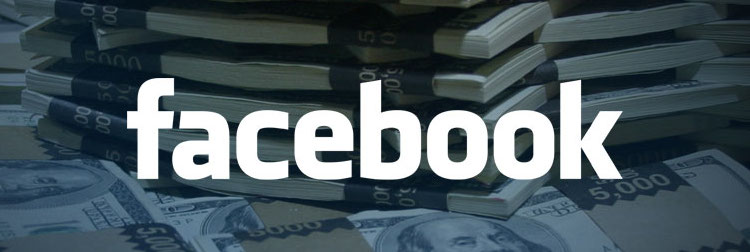For those in the "know," FinTech (or financial Technology) is arguably the most admired startup sector in America. Next to cyber security and SaaS platforms, FinTech firms are revolutionizing the investment process. Companies like Wealthfront and Robinhood allow middle and lower class Americans access to services that have long been reserved for Wall Street's elite. And while I wholeheartedly support Wealthfront's admirable goal of democratizing global investment systems, and Robinhood's elimination of unnecessary trading fees, I am particularly disturbed by Facebook's most recent FinTech venture.
Filed on February 14th, Facebook's (FB) new patent effectively allows the social media giant to generate credit scores for its 1.5 billion members based on connections alone. Tell me that's not a literal formula for disaster! For example, assume that one of my 400 connections has a low credit score of 500. To assume that my creditworthiness is also low, based on a single data point, is factually irrational. Statistical proofs aside, it's equally ridiculous to assume my friends dictate the full likelihood of my ability, or willingness, to repay loans. In short, this method is not comprehensive, nor is it unbiased. Even if my "social" credit score is used in addition to my Equifax, TransUnion, and Experian FICO scores, the metrics upon which it is determined are highly questionable, if not unethical.
At present, there are currently 51 million Americans who have limited access to financial institutions. Some of these individuals are rightly excluded from lending services. However, many of these people simply do not own enough liquid assets for banks to justify loans, regardless of risk-reliant interest rates. As such, many Americans who face financial headwinds turn to predatory lenders like Flashpayday (14-day loan APRs range from 391.07% to 782.14%), Speedy Cash (14-day loan APRs range from 391.07% to 664.29%), and Check 'n Go. Hence, while current barriers to financial services are high for some, an additional Facebook credit score could prove catastrophic for already displaced individuals.
I'm very curious as to how Facebook could implement its creditworthiness tool without (inadvertently) including discriminatory factors in its calculations. Race, ethnicity, gender, religion, age, etc. will inherently play a role in determining credit scores. Obviously Facebook would never reveal the weight, or existence, of these factors, but we do know such variables are already (un)consciously considered by current lenders. Not to mention that people of similar backgrounds tend to balkanize. Hence, if you're a young adult who grew up in an unfortunate situation, say without a father in a low-income neighborhood, most of your Facebook friends may be considered "high risk" individuals, thereby indirectly labeling you "high risk" as well. The only determinant factors included in this analysis are your situation, which can be uncontrollable, environment (a byproduct of your situation), and friends (a byproduct of your environment determined by your situation).
As you can see, this is a dangerous cycle that often times proves problematic and controversial. The last action Facebook should force upon its members is a vicious cycle of "unfriending." It's natural for users to disconnect with others because of non-financial differences (i.e. social or philosophical differences). But to "unfriend" current connections, due to socioeconomic reasons, in exchange for supposedly higher "social" credit scores, entirely defeats Facebook's purpose of "connect[ing] friends, family and other people you know."

